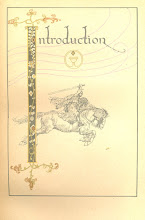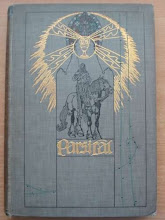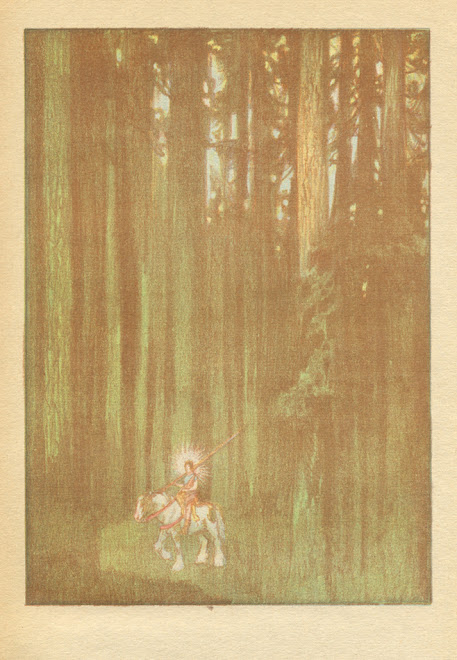I have been watching a great many movies lately. I've been somewhat tired, and kind of took the summer off to catch up with myself. I live near a library and on the weekends I've been checking out mostly older films on VHS. There's not much competition for them, so I've gotten some really good titles. Last night I continued my C.S Lewis multimedia kick, watching Shadowlands, the 1993 film starring Anthony Hopkins as Lewis and Debra Winger as Joy Gresham, nee Davidman, the American poet who became his wife. Gresham was a great admirer of Lewis' work, and in turn she inspired his books Surprised by Joy and A Grief Observed. If you are not familiar with their story, you can infer some of its arc from those two titles. A native New Yorker, Gresham corresponded with Lewis from America when she was still married to alcoholic writer William Lindsay Gresham. Unhappy in that marriage, she took her two sons, David and Douglas (only Douglas is mentioned in the film) to London and went to Oxford to meet Lewis. The two became friends, and when she finally left her husband and settled in England, she approached Lewis with an unusual request - she asked if he would marry her in a platonic civil union so she could remain in the country. He obliged and they lived separate lives until she was stricken with bone cancer. Lewis realized that his own lectures characterizing pain as a call from God to spiritual awakening had come to life, and that he loved Joy. The feeling was mutual, and they married again with an Episcopal priest presiding at her hospital bed. Gresham eventually died in 1960 after a long struggle with the disease, but by all accounts her marriage to Lewis was a happy one. It's been remarked upon how surprising the couple's eventual romance and marriage was, but Lewis was an unconventional man in many ways. He wrote science-fiction and childrens' stories, and also penned populist theology such as The Screwtape Letters, all of which were considered somewhat suspect for a man of his academic accomplishments (don of Medieval and Renaissance Literature at both Oxford and Cambridge). There is a scene early in the film in a local pub where his professor friends are ribbing him about his Narnia books, trying to find Freudian overtones to the wardrobe and fur coats, but Lewis stands up and enacts the scene of pushing through to a new world and describes it as simply "magical." His point is not understood, as the other men are highly invested in intellectualism and rationalism and can't make the imaginative leap to follow him in the snowy footsteps of a faun. Gresham was different. Herself a poet with an imaginative sensibility, she was a prodigy of intellect. She attended Hunter College at the age of fourteen and was published in the prestigious Poetry Magazine by the time she attained her majority. Her family were Russian Jews from the Bronx, although Gresham herself converted to Christianity at least partly on the basis of Lewis' theological writings. She was outspoken and intelligent and I think Lewis liked her simply because she was an equal in her own right who could keep up with him. I have to say I admire him for marrying a strong woman. It cements my positive image of his character that he could hold his own enough to choose a wife who could challenge him.
There is also a strange kind of symmetry to each of the major relationships with women that Lewis had in his lifetime. Lewis's mother died of cancer when he was a boy, which devastated him. In the film, he says his world ended, which is a very fair statement to describe what happened to him in real life. His father did not deal well with the event, and the boys were shipped off to boarding school. It's no wonder they spent most of their lives in company with each other - each was pretty much the other one's only emotional support after their mother passed away. Lewis' brother Warnie had his own struggles with alcoholism, and the men shared a house together for years, exactly as depicted in the film. What isn't covered in the movie is the earlier relationship Lewis had with the mother of a friend. Paddy Moore was a co-cadet with Lewis in WWI and the two agreed that if either died, the survivor would help the other's family. Moore was killed in action, and Lewis, though only eighteen years old, made good on his word. Mrs. Moore was forty-five when they became acquainted, and they lived together until the 1940's when ill health forced her into care. He never elaborated on whether their relationship had a romantic dimension, but he loved her deeply and referred to their interaction as complex. She filled many aspects of the maternal role for him, but also looked up to him as a man, and a stand-up one who had been willing to set aside some of his own needs to help her. As to Gresham, she was already a mother of two sons when Lewis met her, and that had to be appealing to him, echoing the dynamic of his own family with himself and Warnie as the earlier template. He disavows Freudian implications in the film, but the psychological subtext is undeniable. As someone who lost a parent in childhood, I can testify through personal experience that one finds oneself seeking ways to compensate for that loss through later relationships. There is no harm in that, emotional needs exist to be fulfilled, and Lewis' relationship with Gresham seems to have been very fulfilling for him. I read A Grief Observed and while I found it hard to take in some ways due to its personal nature and the dark emotions it describes, it's very clear from the text that Lewis deeply loved his wife and missed her terribly after she was gone. He wrote the book anonymously, but finally had to come out publicly as its author when many of his own friends kept recommending it to him as a tool to deal with his feelings, surely an irony for a private man. He took good care of Joy's sons after she died and named them as his heirs, with all rights to his works - just imagine inheriting Narnia.
I do have to say that I had a few issues with the film. I had wanted to see it because I like Lewis so much, and I am glad that I did, but I thought there were some major gaps in the story which made it somewhat jarring for me. The absence of Joy's son David is one of the main ones. The fact that she had two sons was for me of paramount symbolic importance, since Lewis was also one of a pair of brothers. Perhaps David did not want to be in the film. I have not found any explanation for his absence in any of the related material online, but he was written into an earlier stage version of Shadowlands, so it does seem odd to me that he was taken out of the more high-profile film project. I also felt that the screenplay did not quite do justice to the story. There were several instances where the action was inadequately explained. In one scene at Oxford after their marriage of convenience and just before her cancer diagnosis, Lewis and Gresham are in his college rooms, and she suddenly verbally attacks him for arranging a closed-off life for himself where he always holds the upper hand. She stops one sentence short of calling him abusive, and storms out. He is left utterly confused, with a teakettle whistling in the background that I felt was emblematic of their heated emotions and especially so of her venting. Only one or two scenes later, he is shown calling her, and she falls with a snapped femur on the way to catch the phone, setting the stage for the revelation of her advanced cancer. There isn't adequate explanation, for me at least, of why he even called her. She had been downright rude, almost to the point of being psychologically dysfunctional, and he himself said in hurt surprise, "I thought we were friends." There isn't enough build-up to that scene, and there isn't enough follow-through, either. It is supposed to be one in a continuum of vignettes that shows how Lewis shut down emotionally after his mother's death and never opened himself up to pain again, even though he somewhat hypocritically prescribed its tonic to others in his talks on religion. I felt that that plot point was handled awkardly, however, with this scene as the most egregious example. Her accusation comes out of nowhere, and goes nowhere. As soon as she is sick, it's just forgotten. In a film about two writers, I found several similar lacking elements in the screenwriting. It isn't quite balanced, spending too much time in some places and not enough in others. And as odd as David's absence is, there is a young student of Lewis' that seems to have wandered into the movie for little reason. He's struggling with his classes, and with Britain's class divisions, a poor boy who falls asleep in school and doesn't complete his lessons because he stays up all night reading preferred volumes he has stolen from the local bookseller. He's contrarian, refusing Lewis' help and eventually drops out during his third year but later becomes a teacher. I think he is supposed to be another maverick who bucks Lewis's control, but I found his character grating and superfluous. I am not sure if he was based on someone from real life or was merely added for dramatic tension, but I considered him a distraction whose sacrifice would have strenghened the film. One strong-willed and obstreperous foil is enough, even for C.S. Lewis. Shadowlands was directed by Sir Richard Attenborough, and it is lovely to look at. Oxford is a naturally photogenic setting and the period look of the early 1950's is masterfully achieved. The film proceeds at a stately pace, but there simply isn't enough explanation and development in its content for my taste. Anthony Hopkins and Debra Winger are both well-cast for their roles, they certainly look right and perform admirably, but I never felt any chemistry between them, a serious failing for a film based on romance. As fulfilling as this relationship was in real life, I simply found the movie unsatisfying. Other people have loved it and raved about it to me, but I think I just prefer the real-life story to the Hollywood version. As the takeaway of that, here is a very cute picture of the pair hanging out at his house in Oxford - they do look really happy, don't they?: http://www.aslanbooks.com/images/CSJoylewis.jpg
Monday, October 12, 2009
Subscribe to:
Post Comments (Atom)









4 comments:
We have similar interests.
Have you also read-
Til We Have Faces
Charles Williams
Owen Barfield
now to Scribd,
so I can read more by you.
Thank you for commenting. I have not read Charles Williams yet, but I plan to. I know Lewis loved The Place of the Lion, and that's a good enough recommendation for me. I have not yet read Owen Barfield, either, but I hope to gradually wend my way through the Inklings. I read Till We Have Faces this past summer and enjoyed it very much. I also read the Space Trilogy and almost everything non-fiction by Lewis. I'd been planning to for years, and it was suddenly time for it. It's been a real enjoyment to me to read him, especially the medieval studies stuff. I loved Narnia as a child, and it's a very pleasant thing to have books by the same author that I can enjoy just as much as an adult.
I visited your blog - very nice poetry. You're right, we do have similar interests. Please drop by anytime.
Charles Williams wrote a book of Arthurian poetry called Taliessin through Logres/Region of the Summer Stars with commentary by Lewis. He was also a member of an offshoot to The Golden Dawn(one of the original alchemystical study groups.
When I first came across your blog I thought you might have named it in the Maya Deren Divine Horsemen sense. Especially after seeing you've spent time in New Orleans.
Have I too much imagination?
One of my friends is into Golden Dawn. He spent time in London and got into the esoteric scene there. I spent some time this weekend talking to a Rosicrucian from Holland at the Alchemy Conference in Los Angeles. Re: Maya Deren, I did not consciously reference voudun. I meant the name Parsifal's Horse to convey the concept of the material vehicle that makes the spiritual journey possible. The Grail Knight needs his horse for the quest, and I use my art as a concrete vehicle for my quest in self-development. It's kind of like the chariot that Krishna and Arjuna are riding around the cosmic battlefield that represents material existence in the Bhagavad-Gita.
Post a Comment